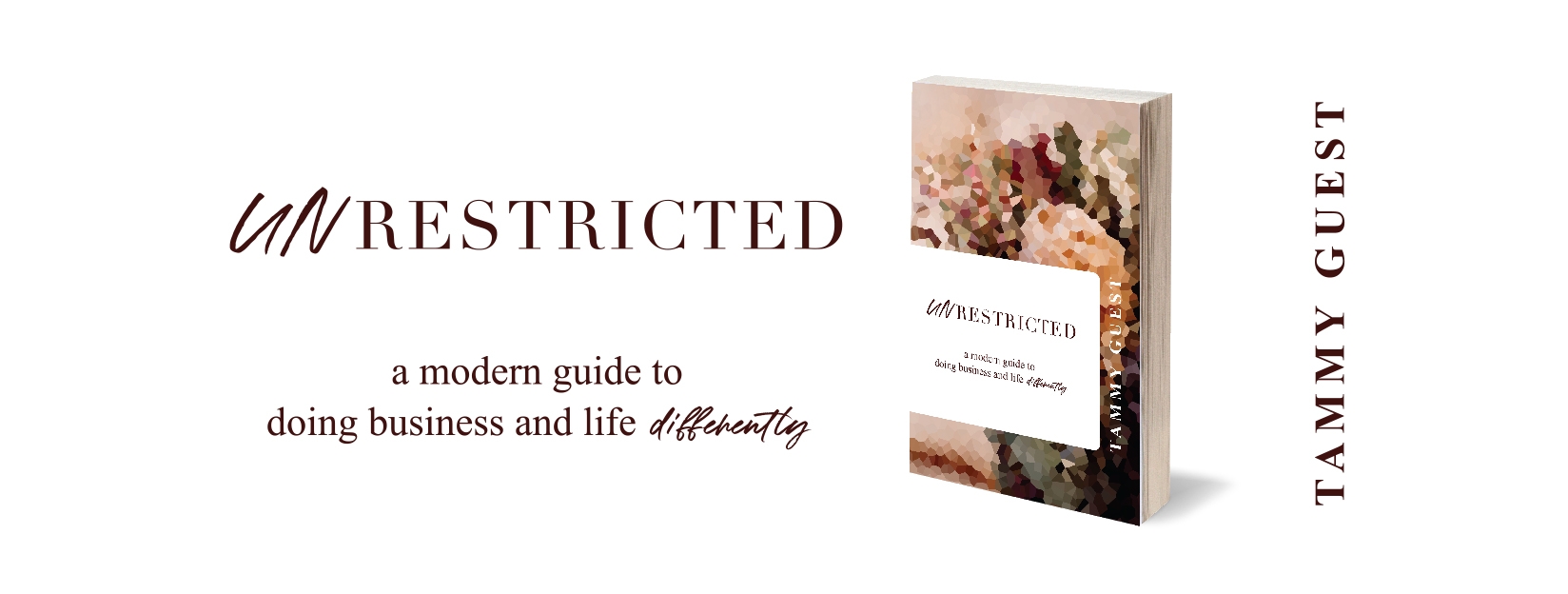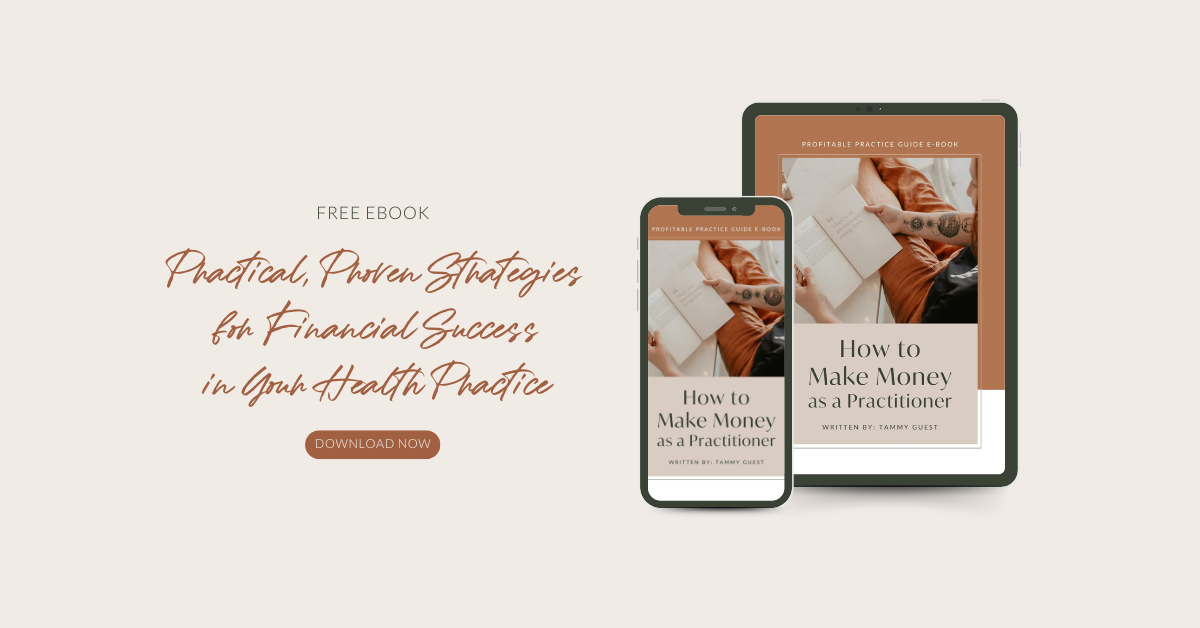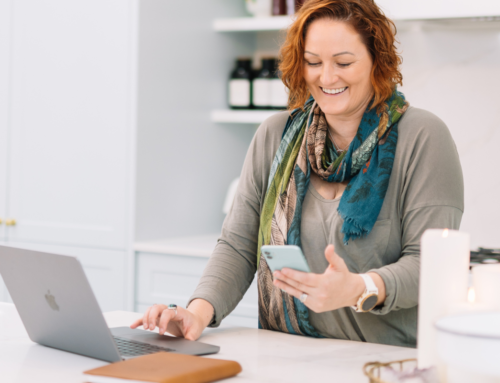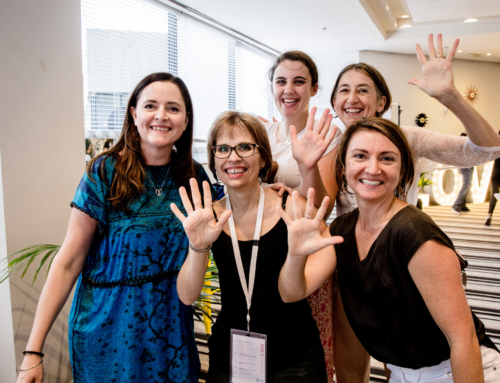In the latest episode of the Natupreneur Movement podcast, I speak with Eric Fernance, the co-founder of SimpleClinic. Eric has had a lifelong career in IT which has given him a unique insight into the shifts and changes that occur in the online space.
Our conversation begins with an exploration into the past trends that have been beneficial for practitioners in the online space. We then continue on to talk about the current climate and the changes that have happened for our clients and their use of the online medium, as a means to grow their business and profile.
Eric and I also discuss the great opportunity that COVID-19 has presented which offers the perfect environment to experiment with online business. It’s the perfect time to make mistakes, learn fast, and come out better business owners for it!
You can also learn how to take your practice online in my new e-course, Transition to Online Practice.
Moving Toward Online Business
T: Hey everybody, and welcome to our online sessions for the Natupreneur Movement. This series, in particular, is in this incredible pandemic time. So I have lined up some of my favourite people to talk about things (that we’ve actually been talking about for years) that so many of our profession and industry are just catching up on now: online business.
I wanted to talk about the opportunities that we all see because we’ve seen them before. And what we think are going to be some really top tips for people who are just catching up and moving parts or their whole business into the online space.
So I’m really excited to talk to Eric from Simple Clinic today. Hey, Eric!
E: Hi, Tammy. Thanks for inviting me on this morning.
T: Eric is the tech legend behind SimpleClinic and also does extraordinary presentations at NatEx. I’m so glad to be talking to you today.
E: Thanks, Tammy. It’s awesome to be here. And it’s a great topic to be talking about, as well.
The Development of SimpleClinic
T: We’ve talked at length before. When SimpleClinic was just first starting up, I was really excited to talk to somebody who was actually in the know. Because I had gone through every iteration of any platform that would come online. I’d be there right at the forefront of it, an early adopter of these things. Then I would quickly find that something didn’t integrate or it didn’t work for a practitioner. There were just so many things that tripped me up.
So, I was really excited to talk to you guys when you were building SimpleClinic. And now it’s this amazing behemoth of a service and a platform. There must be so many things happening for you now because practitioners have finally cottoned on to getting their business online.
E: Yeah, Tammy, it’s awesome. It’s actually really come a long way from when we first launched it about three years ago.
I’d like to thank all our really awesome users for that, as well. Because without their involvement and engagement, building the platform we’ve got today would be really different. So that’s been a really great thing with engagement with the community.
But in terms of practitioners moving their business online, there are some massive things that we’ve seen happening in that space. We’ve been looking at some of the features that we’ve launched just recently to try and support that. Obviously, telehealth integration is there.
But even ancillary stuff around that. So you can send orders directly off to practitioners, off to suppliers for them to drop ship and send to your patients. The ability to order blood tests online that we just launched recently, as well. So you can order your blood tests and send the referrals to the patients for them to just go into whatever collection centres convenient to them.
Really interesting. It’s been great to see the uptake in practitioners actually moving online. Like you said at the start, we’ve been talking about this practising online for quite some time. And it’s really good to see that largely the whole industry has been able to move their business models online. It’s great to see the growth that’s occurring in those particular markets.
I was talking to someone just recently about the traffic that we were seeing through the SimpleClinic website and where we were seeing people actually booking their appointments from. And one of the really interesting things that we’ve seen, along with the normal growth that’s occurred in things like online consultations, we’ve actually seen people’s reach broadening.
So practitioners that were previously just practising in their local community, are now reaching internationally. We’re seeing huge amounts of traffic coming in from Europe and the US. With more and more practitioners getting global coverage through the online offering that they didn’t have before.
Bringing TeleHealth To The Forefront
T: I remember back in the day trying to get on to just the booking system side of things. Just getting a booking system that would work with my website, let alone everything else. Having something that was available through Facebook for somebody to book in. Or even simple things like sending a hyperlink. I feel like a dinosaur in this space because it was like 10 years ago when I was doing all this stuff!
It was like trying to build Lego with random Duplo pieces, trying to put these things together.
And then trying to teach people in my local community how to use the booking system – and that booking system was a thing. Plus, how could I talk to people overseas, market to them, and things like that.
What I’ve seen right now, is that the market, possible clients that we have as practitioners, they’re starting to get it. Because the word ‘telehealth’ is just as prominent as ‘COVID’. Right?
E: Yeah, totally. Telehealth went from being something that was a bit of a fringy sort of thing. There were people who were doing it, practitioners who were doing it and the odd consumer that used it as well. It’s gone from being something that was totally on the fringes to now even your medical centre down the road is offering telehealth consultations for their patients.
Everything Is Online Now
T: And it all just seems quite normal for our potential clients to start to interface with us in this way. We were talking earlier on that the market, the public are now buying things online. In the past week, all of the things that I would normally buy in person, I have automated them to be online.
E: I think it’s a good way for consumers who previously haven’t used online technologies or online platforms. It sort of forced them to actually go and have a look at what’s out there. You know, “How can I get my shopping done online without having to go into the supermarket and face everyone in there?” “How can I order my toys online?”
Even with schools, we’re seeing that, as well. With classes being conducted online and more and more parents getting involved in the teaching process and getting exposure to how to deliver these things.
The Current Grace Period
T: Totally. And the other thing – I ordered my fruit and veggie box and for the first two weeks, it came on the Monday. Then on the third week, it randomly came on the Tuesday.
Because we’re in this space right now, it’s like some little things that aren’t quite right can slip through. And what I think that means for practitioners is that we’ve got a great little learning curve kind of space, right now.
That if you are freaking out about the tech and moving your practice onto a platform like SimpleClinic or something else. This is the time to botch things a little bit. You’ve got a little bit of grace period
E: Yeah, totally. Everyone’s in the same boat. Consumers are expecting things to be a bit rough around the edges at the moment.
Even from the technology perspective. People are used to the fact that networks are dropping out and there’s kind of going to be some connectivity delays, connectivity issues.
I liken it a little bit to building that first website. If you’ve been around in the industry long enough or running your own business long enough, everyone probably remembers the first web site they built. And if you saw it today, you’d probably cringe or shudder. It was something that you probably whipped together, it was probably pretty ugly.
You know, at that time and at that space, you could afford to get away with something that was looking a little bit sub-professional. Consumers weren’t being that picky back then.
But now, if you were to launch a new website and it wasn’t schmick and flash… Consumers expect websites to be something else now. They expect them to be professional, well written, well structured. And you’re seeing exactly the same thing happening now with moving your business online.
Consumers aren’t expecting perfection, right now. They realise there’s a lot of challenges, that people are desperately trying to keep their businesses afloat, and desperately trying to change their business models. They’re probably not used to online delivery. So they will bear with you. They will tolerate the less than perfect recording environment and less than perfect sound.
But, you know, this little window of opportunity where they’re going to be accepting is not going to last forever. There’s gonna come a time where they will expect the totally professional online consultation experience that they do with websites, as well.
Be On The Lead Side Not The Lag Side
T: I couldn’t agree more. This is something I see all the time when mentoring practitioners. Especially the ones that haven’t quite gotten on to the website scenario yet. There is a gap in our learning and our understanding as practitioners and business owners because we don’t actually get taught that stuff. That lead-lag kinda scenario, we’re much better paced right now to be in the lead for this rather than the lag later on – particularly these first six months – and having to try and play catch up in this crazy space.
E: Yeah, totally. I think what we’re seeing now is we’ll see a whole pile of new behaviours and new habits being developed amongst consumers. And if you can be in the early phase of that process, that’s going to be a fantastic place to be.
T: Yeah. Now, you’ve been in tech for quite some time. What changes have you seen, even just the past couple of months, that have been like, Wow!
E: When my wife first launched her naturopathic clinic about 10ish years ago, I spent about six to 12 months doing massage. But other than that, I’ve been in tech my entire life. I don’t know what I would do if the technology industry suddenly tanked.
Actually, I do. If the apocalypse ever came and we were living in caves, I’d be one of those people with absolutely no useful skills that I really relegated to all the grunt work.
T: That sounds like my husband!
The Growth Of Remote Working
E: It’s really funny. I’ve seen a massive shift in remote working in the technology industry. Previously, you might have worked a day each month out of the office. But now you’re seeing your whole life being conducted outside the office. So that’s been a really big shift.
I’ve also seen a really big shift in terms of more and more stuff moving into the cloud. This is probably more of a multi-year thing. But with more technology businesses becoming more and more aware of the consumers and users accessing their platform, tools, software, whatever – they are accessing them from anywhere, across a multitude of devices.
The whole way we connect with and utilise technology has really, really changed. And the whole environment from which we utilise technology has really, really changed.
T: So true! Instead of the one little desktop in it that everybody shared in the house. . .
Rapid Scaling
E: So those are probably some of the really big things. In terms of what I’ve seen from people or organisations I work with directly, I’m seeing a lot of emphasis on how to scale things rapidly. So for example, things like Amazon Web Services. We’re using Zoom at the moment, but I know that they’ve had that same scale by an order of magnitude in the number of users they’ve got on their platform, on the technology stack.
I think every technology provider is dealing with that at the moment. You’re seeing that in Netflix scaling and how that’s forcing telcos to start to rationing bandwidth to Netflix so that people who are working from home can still continue to get the level of access they need.
So I think we’re seeing all these challenges. Had it not been for COVID, we probably wouldn’t have had to deal with these issues or we would have been dealing with them over a protracted time-frame instead of trying to make things happen within a matter of weeks.
T: Yeah, again, that lead-lag kind of scenario. We’ve seen it with Zoom that they were in the lead with what they were providing. They might have had some little gaps in the things they were providing but it’s mind-blowing the scaling they’ve had to do.
The magnitude of people who ended up being on it. And then they had that little lag to catch up again on some of the gaps that they had already probably perceived, but then were able to so quickly turn around and leverage and change. It was really cool.
What Is Special Now Will Be Expected Later
Given what you’ve seen in the past, what do you think about moving forward?
I was always on board with an online business because I was travelling a lot for my retreats and other things. I loved having my business working from my phone. Because it doesn’t matter – wherever I was I could still do it.
Now everybody else is realising they could probably:
- do some of their consultations at their house
- provide that learning service
- access my clients’ files during school pick up
It’s a real change in the way that we’re thinking about things as practitioners, but also for clients.
Moving forward, I don’t think that once COVID is over we’ll be dropping our telehealth service. I really think clients are going to expect that. “Gee, I can’t quite get there on time. Can we turn it into a telehealth consultation? Oh, my kids sick, but can I still have my consult? I can’t afford to come and see you for that actual consultation. But I’d love to be part of your membership programme that’s on your platform.”
What do you see moving forward?
Consumers Will Expect The Convenience Of Online Services
E: You’ve probably nailed most of the big ones. One of the things that’s really been highlighted is that telehealth is convenient, accessible, and usable by everybody. There might have been a fear of telehealth from, say, elderly consumers, people without much technical experience.
But I think by the end of this, they will be pretty familiar with how to use telehealth or engage with practitioners using a telehealth setting. And I think they’re really going to realise that the convenience it brings into their life is something they don’t want to walk away from.
So I definitely agree with you in the fact that telehealth is here to stay, now. This has been a really good way to, I guess, force practitioners and consumers but to jump on board with telehealth.
In terms of e-learning and memberships, you’re spot on again with that one. One of the things that’s really happened is that we became aware that financial circumstances can change. They’re outside of control of everybody.
We’ve also become aware that in a consultation, you’ve sold your time once. So as we move online, it opens all these doors where you can sell your time again and again and again as part of a membership programme, workshops, e-learning, online courses that can make things really affordable for consumers. Because you’re writing the content once and they’re accessing it at their convenience.
Online Business Offers Flexibility For Customers
But also it gets away from locking people into particular times where they’re actually going to come and see you. Maybe they can’t get away from the kids during the days. So they want to be able to access that material outside of your consult hours and that gives them the flexibility to do that. So I think those are going to be two really, really massive areas.
The other thing I’ve noticed as well is that it’s made people really cognisant of their health, their food, where things are coming from. As well as their own health and the health of people around them. So I’m really hoping we can take some of these things forward and maintain some of the habits that we might have picked up in terms of cooking from home.
I read something ages ago. I would love to be able to cite where I got it from but I can’t remember. It said that before COVID, for every dollar spent on food in the home, four dollars was spent outside the home. Whilst I really feel the plight of people working in hospitality and restaurants and I don’t want to downplay that, I think it’s good that with COVID, they’re now saying that every dollar spent outside the home for food, four dollars are being spent inside the home on food and food preparation.
I think that’s a really great thing. This is one of the things that makes me really excited to be working particularly in the Naturopath, Nutritionist, Herbalist space is that it’s what you’ve been saying all along: The foundation is diet.
Hitting Reset On Health Behaviours
This situation has made people cognisant of that. And it’s a really good opportunity to start giving people the materials and the resources they need to make a healthy change. It’s been a bit like a big reset button in a lot of ways.
I know this is a bit outside the scope of the question, but it’s made us hit pause and go, “Hey, really. We’ve got all this time on your hands or a lot of us have got all this time on our hands. We’re stuck in the house. So let’s start to embrace some new behaviours. Let’s start to cook more, experiment with food, spend time with family. Maybe spend some with friends on social media or whatever.
T: I couldn’t agree more. It’s so true, even for myself personally. Sure we cooked and we enjoyed it a couple of times a week. But now, I’m so cognisant of our once a week take away. We are literally lining up different menus to decide
- which one are we going to do this week?
- Is it in alignment with our values?
- Are they selling soup on the side for some of the homeless people here locally?
- What are they doing to talk to us?
We’re making some really aware decisions about where our money is going.
Oh my goodness, I’ve been doing yoga every day, my kids are actually doing workouts. And the food!
We are so well placed as naturopaths and nutritionists to just turn up at three o’clock every afternoon and tell somebody what to eat.
E: Yep, yep. And look, there is some dramatic scope there for online resources, online learning materials remote cooking sessions. PTs are already doing Zoom-based personal training sessions, and yoga classes. My nephews are doing karate class via Zoom.
There would be a fantastic opportunity for nutritionists and nat-herbies to get in there and start doing some group cooking. Let’s run these as online resources. People are consuming them. We can see it from everything else.
Advantages Of Online vs In-Person
T: Totally. And those things don’t require the rent that it takes to be in an event space. It doesn’t take the ticketing. It’s literally in their head already. They can find a platform to put their eCourse on and it’s shareable. I think this is the thing – like you said, it’s not going to go away.
Of course, some of it will. But I reckon there’s going to be such an ingrained way of understanding time and health in a way that we didn’t understand it before. Because we hadn’t experientially gone through it.
E: It’s really interesting that you mentioned a new way of understanding time. I had a conversation with my parents recently. We were talking about their granddaughter or my niece. All her ballet classes have moved online. And they just sort of made the comment in passing, which I’ve sort of been tickling away in the back of my head for a little while.
And I think it really came out when you said that. They said her stress and anxiety levels – and she’s only a child – have reduced because she doesn’t need to be at all these extracurricular activities and spend all this time on travel. They’re essentially coming to her.
You’re exactly right. It’s going to change a lot of those behaviours.
T: Yeah. Yeah. As you said, as practitioners, nuts, nats, and herbies are so perfectly placed to be there, to ride that wave.
Eric, this been so good. I could keep talking to you for ages about all of these aspects. It’s been such a wonderful conversation, thank you. Is there anything else that has come to mind as we’ve been talking that you’ve wanted to share?
Now Is The Time To Experiment With Online Business
E: No, I think we’ve probably covered all the main points. But one thing I would say to people is that now is a really, really fantastic opportunity to experiment with new ways of doing business and new ways of delivering things.
Experiment with new options for actually reaching your consumers. Because people are a lot more forgiving now. And they’re going to be for the next little window of time whilst everyone sort of finds their way.
And people are desperately looking for things to consume. I say that in the loosest possible way, in terms of people are desperately looking for things to fill their time while they get used to the new normal. They’re looking for things to do, for options that you can provide.
One of the things I love about naturopaths, nutritionists, and herbalists is there’s such a positive impact that you can make on people’s lifestyles with your combined skill set and knowledge that aren’t available to other modalities. And so few restrictions in the way you interact with people.
Get Curious
T: Yeah, I love that. I want to reiterate what you were saying before, that now is the time to get curious. Don’t think about doing this in the future, because you’re going to be left behind.
Take some type of action now to experiment and see. Some of it might not stick, some of it might not resonate. It’s okay. There’s a plethora of other things that you can do to experiment. And run multiple experiments at once. But you need to do something now to not be left behind in the future.
E: Even if it’s just one thing. Even if it’s just one course, one workshop, one programme, whatever it might be.
T: Love your work! Thanks so much, Eric.
Take Action
If you got something out of this or know somebody who would, please share it. Don’t waste this unique time when you can experiment with offering your services in different ways that can transform your business and life – and that of your clients – for the better.
Get exactly what you need to know to transition to an online business. Avoid the trial and error and learn from my years of experience as an online practitioner with my new e-course, Transition to Online Practice.










Leave A Comment